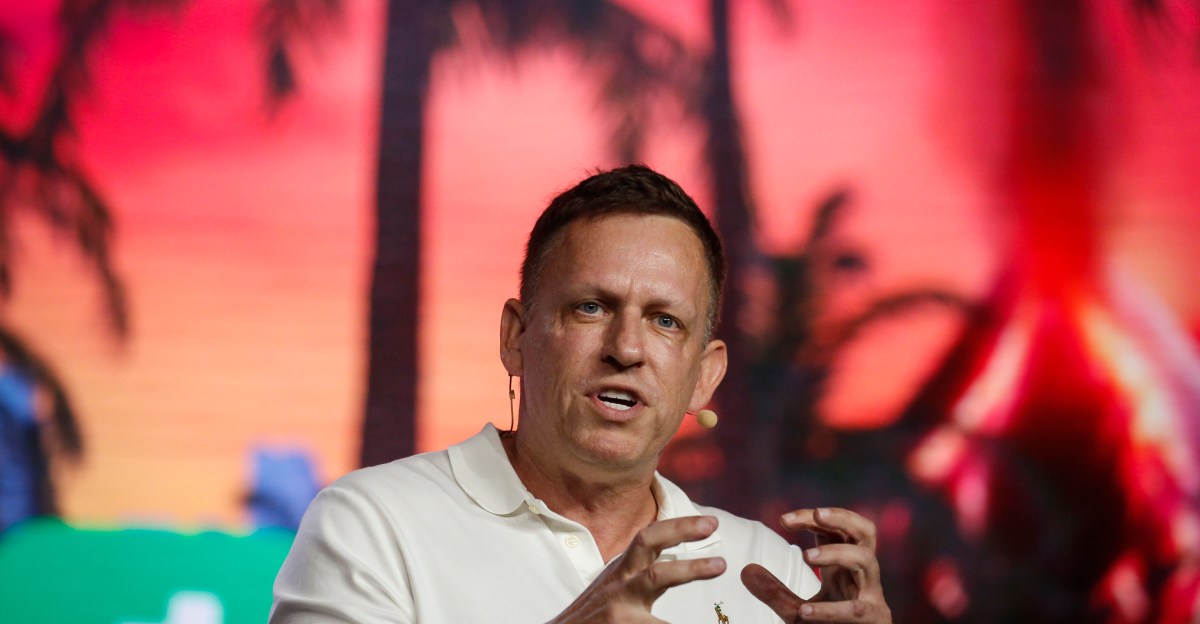Peter Thiel Warns AI Regulation Could Herald an ‘Antichrist’ Era

Key Points
- Peter Thiel delivered a four‑part lecture series linking AI regulation to a biblical Antichrist scenario.
- He argues that existential risks create a climate for a one‑world government promising peace and safety.
- Thiel equates such a regime with the Antichrist, a charismatic entity using apocalyptic rhetoric to gain power.
- The talks reference a range of cultural sources, from Renaissance art to Japanese manga.
- Thiel cautions that restricting AI could unintentionally hasten the rise of authoritarian control.
- He highlights the United States' pivotal role in shaping global governance outcomes.
- Acts 17 Collective aims to merge Christian thought with technology leadership.
Silicon Valley billionaire Peter Thiel delivered a four‑part lecture series in San Francisco arguing that government attempts to regulate artificial intelligence and other advanced technologies could pave the way for a totalitarian authority he likens to the biblical Antichrist. Drawing on eschatology, existential‑risk scenarios and cultural references, Thiel warned that calls for “peace and safety” may mask a push toward global control over science. The talks, hosted by the Acts 17 Collective, blend theological speculation with a critique of regulatory overreach, positioning Thiel’s viewpoint at the intersection of technology, politics and religion.
Background
Peter Thiel, the venture‑capitalist and founder of Palantir, staged a four‑part series of religious lectures in San Francisco. The events, organized by the Acts 17 Collective, explored Thiel’s belief that the end‑times narrative is being used to justify expansive government regulation of emerging technologies, particularly artificial intelligence. Thiel, who previously recorded a two‑part podcast on the Apocalypse with the Hoover Institution, frames his argument in terms of eschatology, the study of the world’s ultimate destiny.
Key Themes
Thiel contends that the looming existential threats—nuclear war, environmental catastrophe, engineered bioweapons and autonomous killer robots—create a climate in which a one‑world government could promise “peace and safety” while seizing unprecedented control. He equates this potential regime with the biblical Antichrist, describing it as a charismatic entity that repeatedly invokes Armageddon to gain authority over scientific progress. According to Thiel, fearing or restricting AI would accelerate, rather than prevent, the rise of such an authority.
The lectures blend theological references with cultural imagery, ranging from Renaissance paintings by Luca Signorelli to Japanese manga. Thiel emphasizes that technological regulation, in his view, is not merely a policy issue but a profound moral and philosophical crossroads that could reshape global governance.
Political Context
Thiel’s commentary also touches on the United States’ role in globalization and its potential to become either a safeguard against or a catalyst for the Antichrist scenario. He suggests that the nation’s economic, military and ideological influence positions it at the “ground zero of globalization.” While not naming specific political figures, Thiel hints that presidential elections and national leadership could be pivotal in determining whether regulatory efforts align with his warning.
Implications for the Tech Community
Acts 17’s mission—to bring Christian perspectives to tech founders, designers and creatives—frames the lectures as a call for introspection within Silicon Valley. Thiel urges the tech community to consider the broader societal consequences of embracing regulation without examining the underlying motivations and potential for power consolidation.